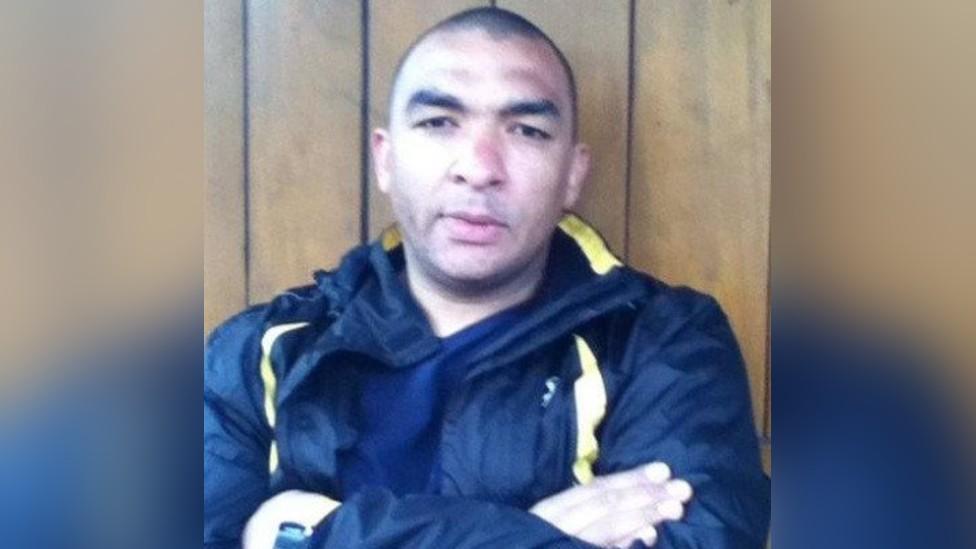Leon Briggs: Restrained man 'should have gone to hospital'
- Published
Leon Briggs: CCTV shows final hours of man restrained by police
A man who died after being restrained by police should have been taken to hospital rather than a police cell, an inquest was told.
Leon Briggs, 39, died in November 2013 after being detained under the Mental Health Act at Luton police station.
CCTV showed there was "zero medical input" from paramedics at the scene.
The inquest was also told "institutional failings" by emergency services meant Mr Briggs did not receive a proper medical assessment.
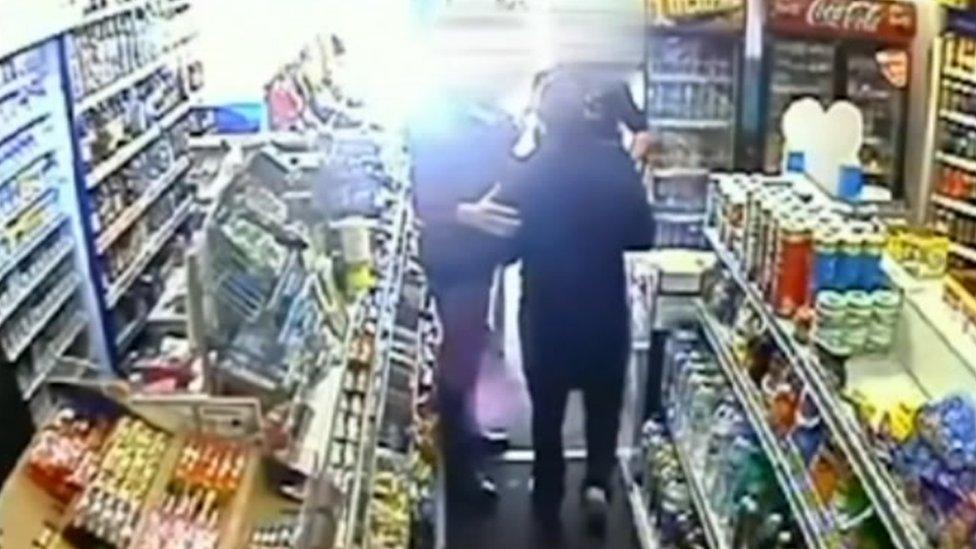
Footage showed Mr Briggs walking out of a shop with officers before he was restrained
The jury was shown CCTV of the father-of-two skipping between shops and across roads, before two Bedfordshire Police officers handcuffed him and placed him in leg restraints on Marsh Road in Luton on 4 November 2013.
Mr Briggs was detained in a cell at about 14:25 GMT under the Mental Health Act, but he became unconscious and was pronounced dead in hospital at about 16:15.
The inquest heard his primary cause of death was "amphetamine intoxication with prone restraint and prolonged struggling".
A secondary cause of death was given as coronary heart disease.
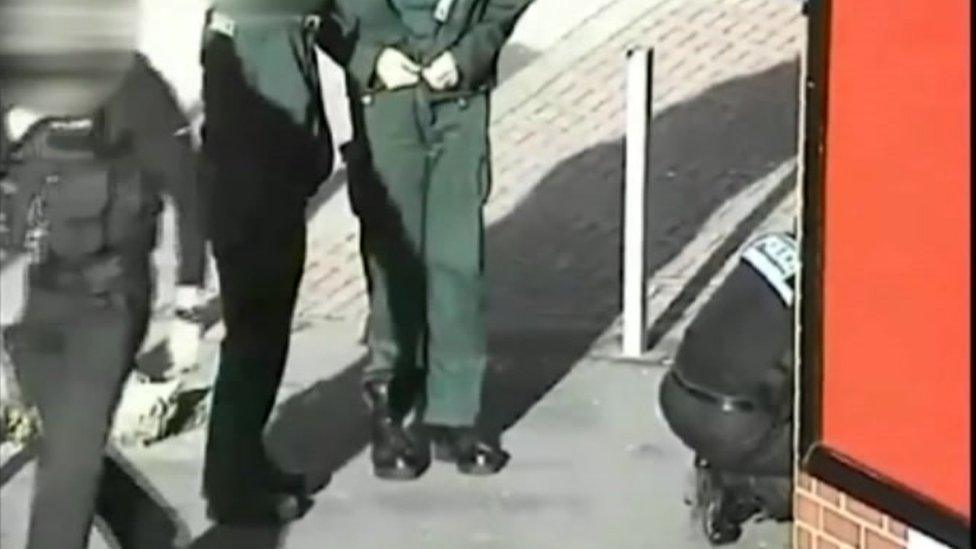
Paramedics watched the restraint but did not assess Mr Briggs or offer medical advice to officers, the inquest heard
Lewis Andrews, clinical general manager of the East of England Ambulance Service NHS Trust (EEAST), agreed with the Briggs family lawyer, Dexter Dias QC, that there was "absolutely zero medical input from ambulance crews" shown at the scene in the CCTV.
Mr Andrews agreed the two paramedics who watched Mr Briggs being restrained in a "dangerous" face-down position "did not even speak to Leon" or "offer medical advice to police".
He also agreed the lorry driver, from Luton, should have been driven to hospital in an ambulance rather than being taken into custody by police.
John Beggs QC, representing Bedfordshire Police, said police officers had planned to take Mr Briggs to hospital after they had "calmed him down" in the cell.
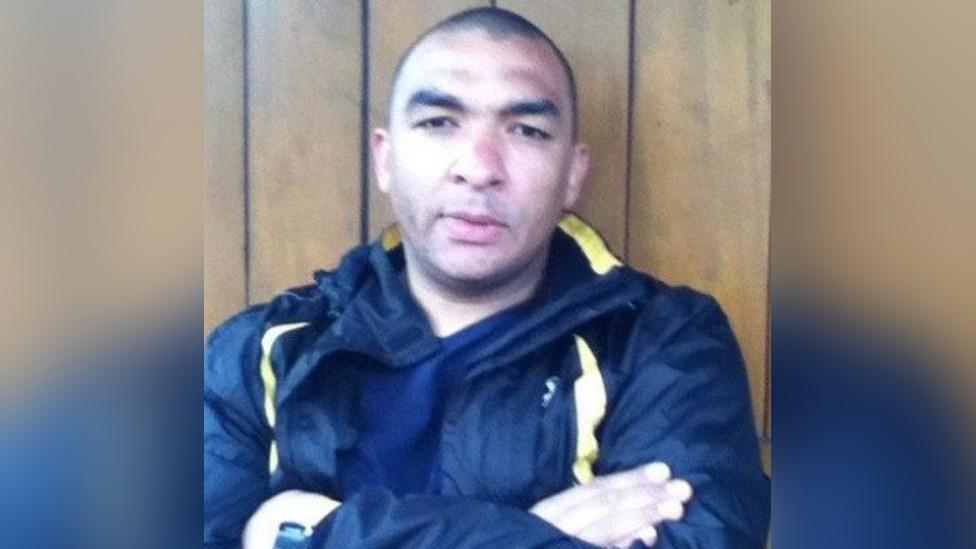
Mr Briggs was described as "a really good dad" who loved spending time with his children
Mr Andrews told the inquest it was "common procedure" for mental health patients to be taken to custody in 2013, although guidelines have since changed.
The jury heard that laws made in 2008 outlined how police and paramedics should coordinate their response to patients sectioned under the Mental Health Act to prioritise their treatment, but a "joint protocol" was not established nationally until 2013.
EEAST crews only started training based on this protocol two days after Mr Briggs died.
Mr Dias described it as an "institutional failure" on the part of the emergency services.
Mr Andrews said there had been "failings on national clinical guidelines for ambulance services" but agreed training for an organisation with more than 4,000 staff "is always going to take a bit of time".
The inquest continues.

Find BBC News: East of England on Facebook, external, Instagram, external and Twitter, external. If you have a story suggestion email eastofenglandnews@bbc.co.uk
- Published25 January 2021
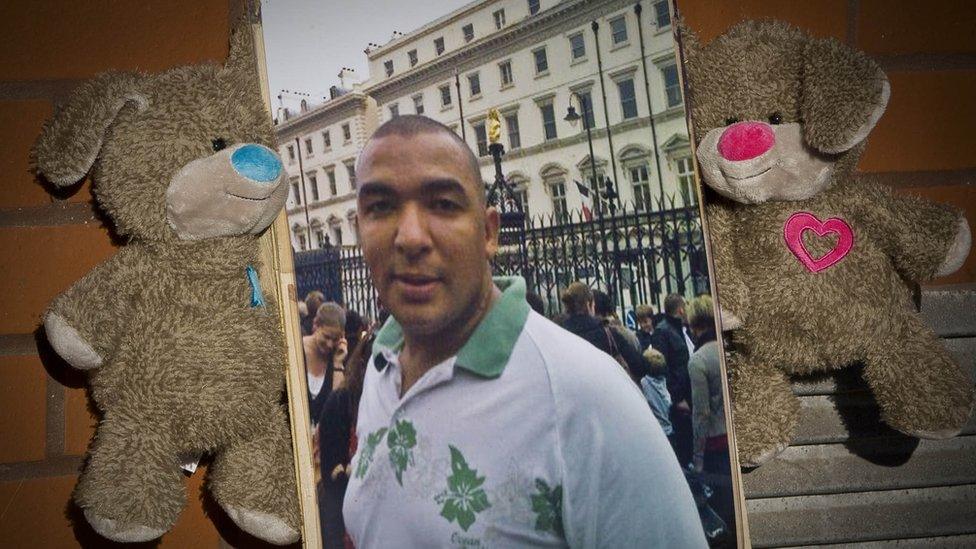
- Published21 January 2021

- Published19 January 2021
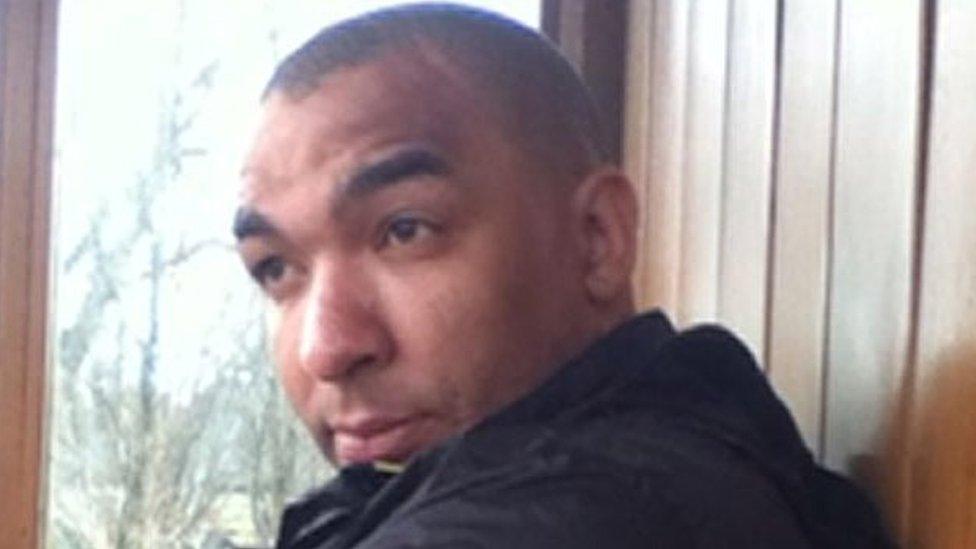
- Published18 January 2021

- Published14 January 2021

- Published13 January 2021
